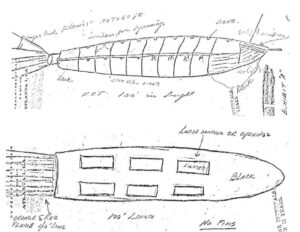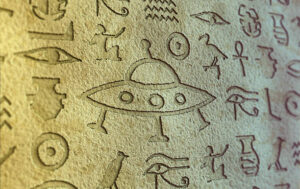Graham Hancock is a name synonymous with alternative history and archeology. An influential British writer and journalist, he is renowned for his controversial theories about historical events and civilizations that challenge mainstream archeological consensus. This has made him a polarizing figure, simultaneously loved by those who value independent thought and criticize conventional wisdom, and viewed with skepticism by traditional academics and archeologists.
Career and Influences
Born on August 2, 1950, in Edinburgh, Scotland, Hancock spent his early career as a journalist for outlets such as The Times, The Guardian, and The Independent. His experiences in the East Africa region, including Ethiopia, influenced his early writings significantly, leading to non-fiction books such as “Ethiopia: The Challenge of Hunger” and “Lords of Poverty.”
However, Hancock’s career took a turn in the late 1980s and early 1990s when he started investigating and writing about unconventional historical theories. This marked the onset of his journey into the realms of alternative history and speculative archeology, culminating in a series of best-selling books that have captivated audiences worldwide.
Controversial Works
Hancock’s first venture into alternative history, “The Sign and the Seal: The Quest for the Lost Ark of the Covenant” (1992), proposed an Ethiopian location for the legendary Ark of the Covenant. While it was a commercial success, it was also the beginning of Hancock’s contentious relationship with mainstream academia.
His 1995 book, “Fingerprints of the Gods,” posited the existence of a sophisticated, lost civilization that had influenced ancient cultures such as the Egyptians and the Mayans. This book became an international bestseller and catapulted Hancock into the spotlight as a leading figure in alternative history.
Other notable works include “Heaven’s Mirror” (1998), “Underworld: The Mysterious Origins of Civilization” (2002), and “Magicians of the Gods” (2015). Each book further explores the concept of lost advanced civilizations and their potential influence on human history.
Critiques and Controversy
Hancock’s theories, while popular with the general public, have been met with significant skepticism and criticism from mainstream historians and archeologists. Critics argue that his work lacks methodological rigor, cherry-picks evidence to fit preconceived theories, and misinterprets or misrepresents historical and archeological data.
Hancock has often responded to these criticisms by arguing that mainstream academia is resistant to new ideas and paradigms. He contends that his role is not to provide final answers but to raise questions and stimulate debate about accepted historical narratives.
Legacy and Influence
Regardless of the controversies surrounding his work, there’s no denying that Hancock has had a significant impact on popular perceptions of history. His books have sold millions of copies worldwide, and his ideas have spawned countless discussions, debates, and further explorations into the mysteries of our past.
His work has also found resonance with proponents of the Ancient Astronaut theory and the idea of Atlantean civilization, even though Hancock himself does not explicitly endorse these views. Moreover, his engaging style and compelling storytelling have helped to popularize history and archeology, subjects that are often seen as dry or overly academic.
Despite criticisms from mainstream archeologists and historians, Graham Hancock’s influence on the alternative history genre is undeniable. He has challenged conventional narratives, sparking interest and conversation about our past. Whether one agrees with his theories or not, it’s clear that his provocative ideas continue to engage readers worldwide, inspiring many to question and explore the rich tapestry of human history.










